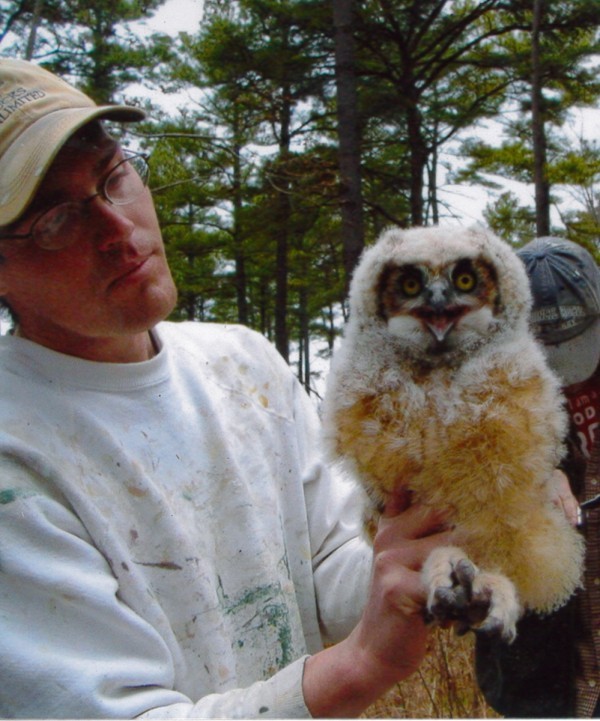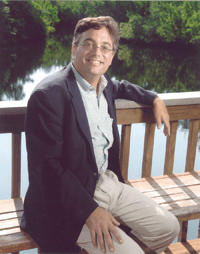Feeding birds in frigid temps
Jared Parks with juvenile great horned owl. Recent snow and frigid temperatures are difficult for humans, but even harder on birds. Birds have always been able to survive the cold and snow, said Jared Parks, land protection specialist for Eastern Shore Land Conservancy and local birder, although a fair amount of natural mortality from the cold is expected. Parks has been birding all his life and before his tenure at ESLC was field crew leader on many bird study projects across the United States. In harsh weather, birds have difficulty finding open ground on which to feed, he said. “Feeding birds is not necessary, but it is not a bad thing– and they will be very happy if you provide them a consistent food source – consistency being key,” Parks said. If you feed birds, keep feeding them. Feeders do not need constant refilling, but those who feed birds should provide food every day, preferably on a consistent schedule. Fresh water is important now too. Birds need to drink and bathe, and cold temperatures limit the availability of open fresh water. Water is tough for people to provide in extreme cold because it is hard to keep from freezing. “Frozen water can crack your bird bath,” Parks said. Small heaters and pumps both have limitations as pumps can freeze in extreme conditions, and water must not be too hot. Many wild bird feeding stores will have heaters and pumps that are appropriate for bird baths and should offer temperature limitations. To provide open ground for birds, shovel driveways and walks a bit wider than the pavement to uncover a few feet on either side. If most of the snow is removed, the sun will warm the darker ground, opening up spots where birds can get bits of food and gravel (which birds need to help crush their food). It creates the








